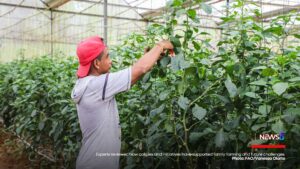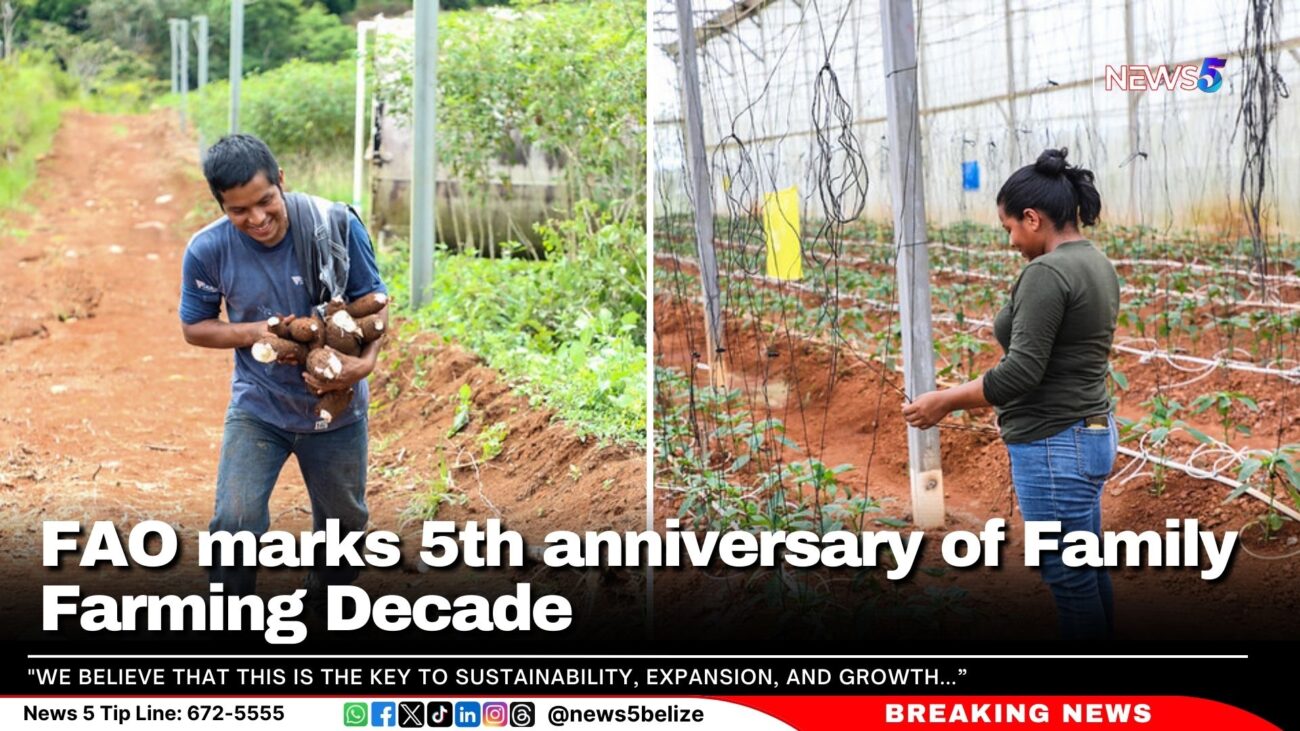FAO marks 5th anniversary of Family Farming Decade
As part of the commemoration of the fifth anniversary of the United Nations Decade of Family Farming, experts from regional institutions, governments, and civil society gathered to share experiences and reflections and to address the challenges of strengthening family farming in the region.
The Food and Agriculture Organization of the United Nations (FAO), the Executive Secretariat of the Central American Agricultural Council of the Central American Integration System (SECAC/SICA), and the Specialised Meeting on Family Farming of Mercosur (REAF/MERCOSUR) convened to share experiences and evaluate progress made in the framework of the United Nations Decade of Family Farming in Latin America and the Caribbean. It was also an opportunity for the countries to reaffirm their commitment to continue promoting this key sector in the region.
The virtual event brought together prominent experts from SECAC/SICA, REAF/MERCOSUR, the Dominican Republic and Uruguay governments, and family farming associations. These experts reflected on how public policies and regional initiatives have supported the development of family farming and how to address the remaining challenges in the next five years of the decade.
Mario Lubetkin, FAO Assistant Director-General and Regional Representative for Latin America and the Caribbean, opened the event by highlighting the actions that have positioned the region as a leader in this area.
“With the adoption of national plans, Latin America and the Caribbean has become an active voice in the development of regional strategies. This has allowed the creation of participatory and innovative solutions that strengthen family farming in its social, economic, and environmental dimensions,” he stressed.

He also called for increased efforts to create better opportunities for farming families. “More than ever, we must continue to work on these issues and build regional public goods that allow countries to advance an inclusive agenda for rural transformation in which family farming is established as a key player,” he said.
Lucrecia Rodríguez, Executive Secretary of SECAC, affirmed that the Decade of Family Farming is a tool they have embraced to align their actions, noting that “although we still need to consolidate some policy instruments, this has not been an obstacle for actions to follow a medium- and long-term strategic direction,” and reaffirmed the Secretariat’s commitment to the development of family farming.
Meanwhile, María Noel Salgado, representative of the Alliance for Popular Food Sovereignty, noted that one of the major challenges of the Decade of Family Farming is to achieve the transition to agroecology. “We believe that this is the key to sustainability, expansion, and growth, not only in terms of production but also in terms of the ability to make a living from it,” she said.
Finally, Fernanda Maldonado, Director General of the Secretariat of the Ministry of Livestock, Agriculture, and Fisheries of Uruguay, said that despite the progress made, there is still work to be done to strengthen family farming in the region. “Only by building strong alliances and productive dialogues can we pave the way for hope and provide real solutions for the entire family farming sector,” she said.
The conclusions of this meeting will be crucial in identifying new strategies to achieve the goals set out in the action plans for the implementation of the Decade of Family Farming and to strengthen the sector through differentiated measures that improve access to financial services and new markets.
G20 backs FAO’s Blue Transformation for sustainable fisheries and aquaculture
The event also served as a prelude to the Global Forum on Family Farming, to be held in Rome, Italy, from October 15–17, which will showcase solutions and progress in promoting family farming worldwide, in line with the Global Plan of Action for the Decade of Family Farming.
United Nations Decade of Family Farming
In 2019, the United Nations General Assembly proclaimed the United Nations Decade of Family Farming (2019-2028), highlighting the essential role of family farming in eradicating hunger, reducing poverty, and creating sustainable food systems.
At that time, 448 representatives of governments, civil society organisations, the private sector, and academic institutions from 113 countries agreed to take action to promote and strengthen family farming.
In August of the same year, the decade was launched in Latin America and the Caribbean, with the participation of 21 governments, representatives of civil society organisations, the private sector, and academia interested in developing the transformative potential of the sector.
FAO launches new analyses on progress in reducing hunger in Latin America and the Caribbean







Facebook Comments